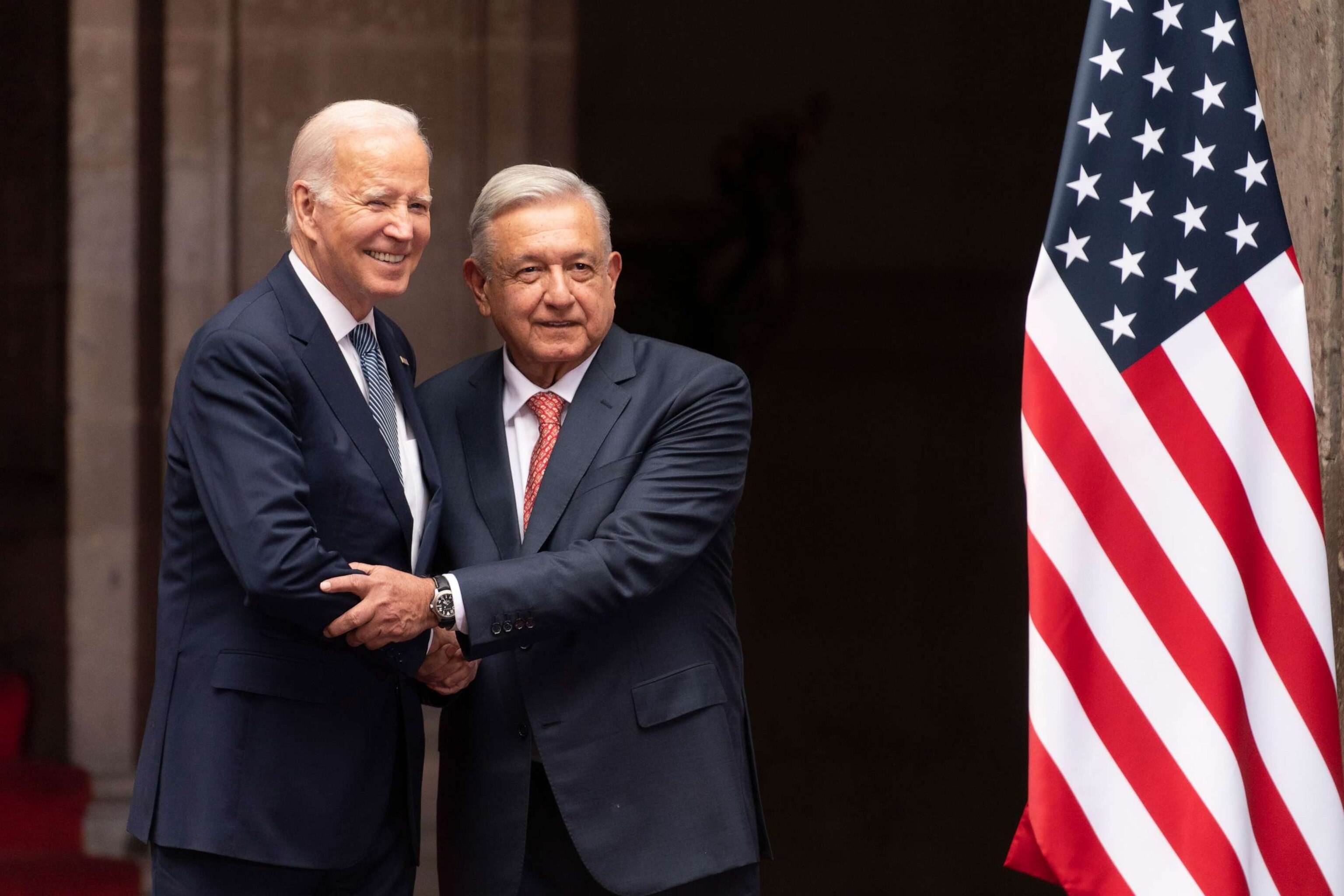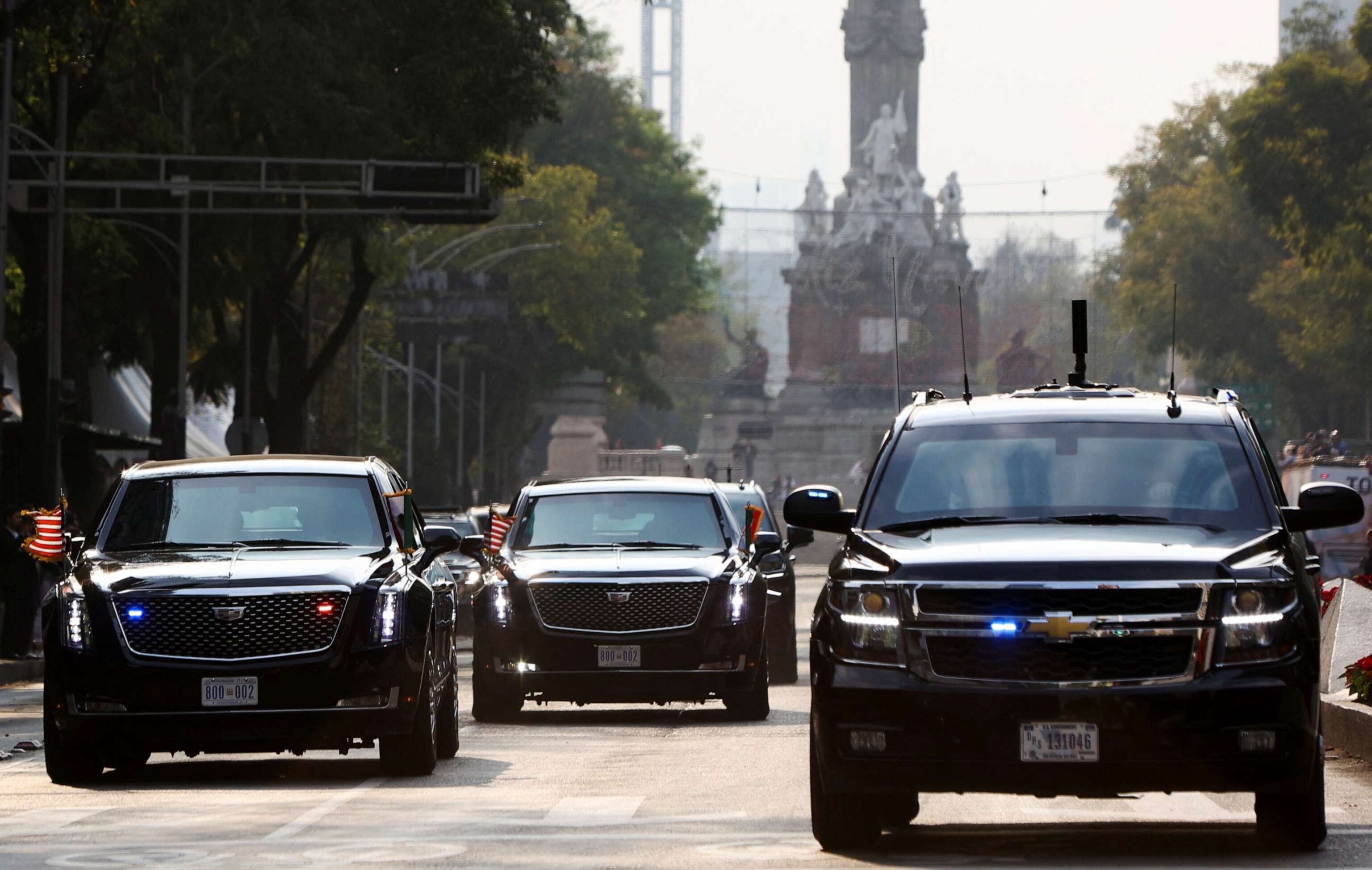What the US, Mexico and Canada agreed on ahead of 'Three Amigos' summit
But perhaps most notable was what's missing so far.
MEXICO CITY -- The White House announced new agreements between the United States, Mexico and Canada on Tuesday, just hours before the countries' leaders -- the so-called "Three Amigos" -- meet for trilateral talks in Mexico City.
But perhaps most notable was what's missing so far -- there was no fresh commitment on fentanyl, a powerful synthetic opioid that is smuggled across the border from Mexico, even after the White House said President Joe Biden would make specific asks of his Mexican counterpart, President Andres Manuel Lopez Obrador.
Instead, the White House said the three countries have committed to "increased information sharing on chemicals used in the illicit manufacture of fentanyl and other synthetic drugs" -- a far cry from any new law enforcement operations, sanctions or other activity to disrupt fentanyl production and trafficking by drug cartels.
The North American Leaders' Summit brings together Biden, Lopez Obrador and Canadian Prime Minister Justin Trudeau for two days of talks, with border security and migration -- both legal and illegal -- as key topics.

On migration, the White House said the three countries have agreed to take small steps to try to encourage migrants to apply for legal status, rather than put their lives in the hands of smugglers and make the journey north. But those steps -- including a new joint platform online to give migrants "streamlined access to legal pathways," a new legal center in southern Mexico backed by private sector funding and "sharing best practices" -- are similarly meager given the scale of the issue.
More notable were the fresh commitments to increase economic cooperation -- working together on key sectors, such as semiconductors and critical minerals, as well as on supply chains and advanced workforce training. While no financial commitments have been announced yet, those agreements include a cabinet-level summit on semiconductors, mapping mineral resources across the North American continent and promoting educational investment.
Both Biden and Lopez Obrador boasted that kind of cooperation during a one-on-one meeting on Monday, with the Mexican president describing his American counterpart as a "humanistic" and "visionary" leader and calling for new U.S. investment in the region.
"There would be no other leader that could implement this enterprise -- beginning with you," Lopez Obrador said to Biden in front of reporters. "You hold the key in your hand to open and to substantially improve the relationship among all the countries of the American continent."

Biden, who has repeatedly talked about the importance of rebuilding U.S. manufacturing and moving supply chains closer to home, agreed up to a point -- telling Lopez Obrador: "We're at one of those inflection points where what we do in the next several years is going to determine what the world looks like in the next two, three, four decades."
But Biden noted that the U.S. already provides more foreign aid than any other country and, "unfortunately, our responsibility just doesn't end in the Western Hemisphere."
There's also a major, ongoing dispute over energy. Lopez Obrador has taken steps to box out foreign companies, especially in the renewable space, and instead prop up Mexico's state-owned oil firm, Pemex. That triggered the U.S. and Canada to file a formal complaint in July under USMCA, a Trump-era free trade deal between the three countries that replaced the 1994 North American Free Trade Agreement.
Not only did the White House make no mention of this dispute on Tuesday ahead of the trilateral talks, it said the three countries have recognized "the urgency for rapid, coordinated, and ambitious measures to build clean energy economies and respond to the climate crisis," alongside another list of commitments, from reducing methane emissions and food waste to electrifying public buses and expanding conservation and electric vehicle chargers.




